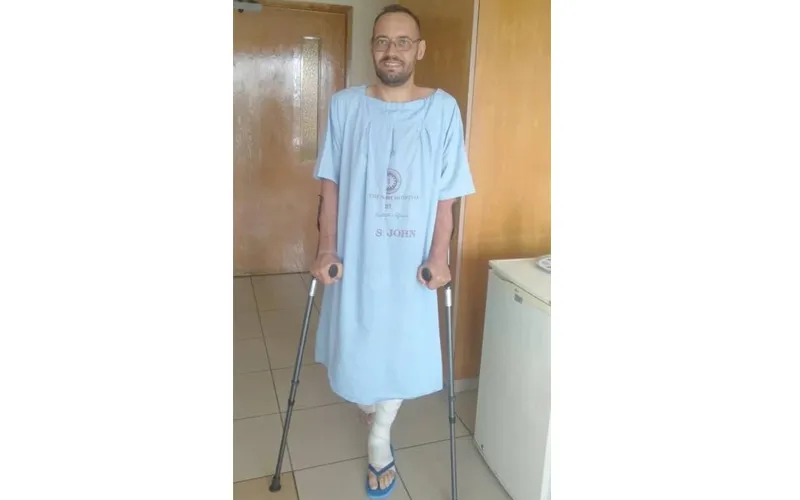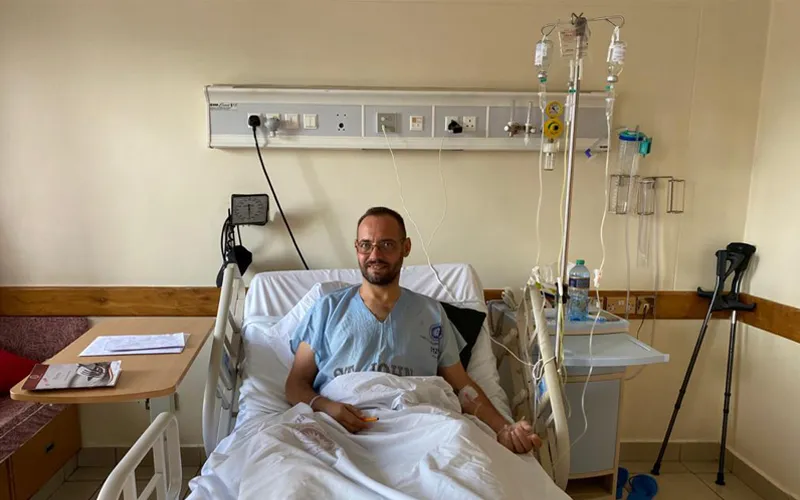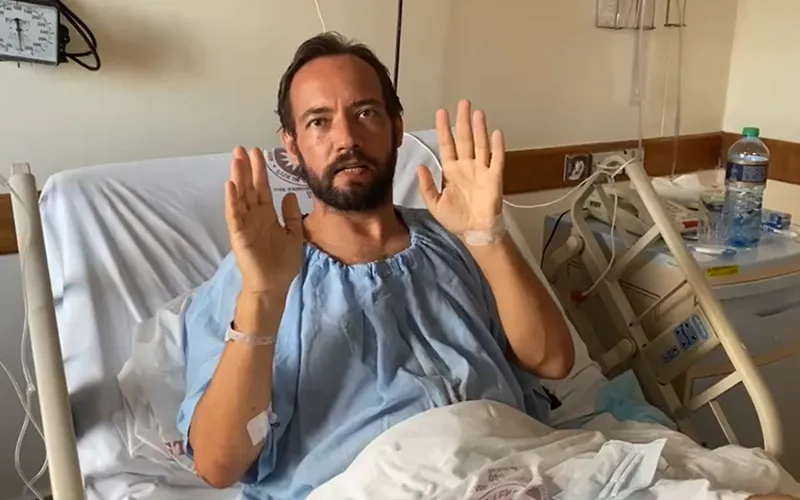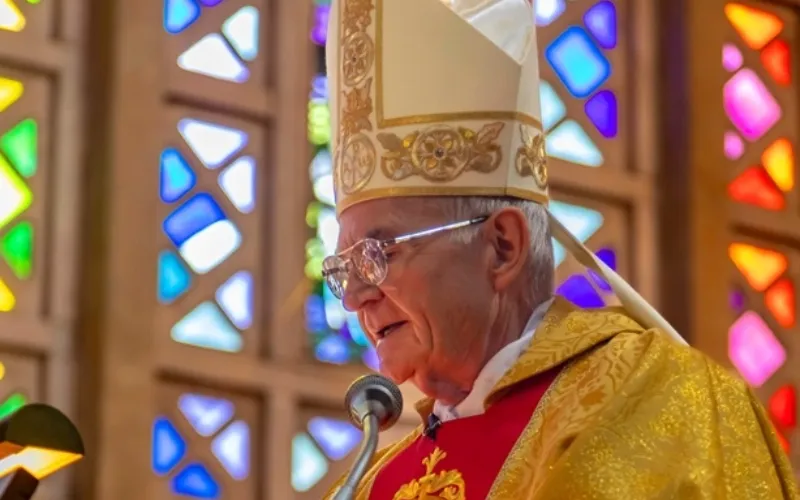
“It is not the people of South Sudan who shot me. It is not the Dinkas who shot me, neither the Agar,” he explains and adds that those who shot him “are a group of few people” deprived of “human values and they are a shame for their community.”
He reiterated, “Rumbek does not beat and kill Priests as it happened a few years ago; Rumbek does not mistreat Religious Brothers or Sisters. Rumbek does not abuse any person. This is what we want from Rumbek. The opposite should never happen again.”
Msgr. Carlassare goes on to “invite the community leaders and local chiefs to spot out violent members of their community and apply the customary laws, which do not tolerate violence, especially when it can be avoided.”
“Do not allow violent members to hold all the community hostage. Dinka culture has no room for violence. Violence is not part of any culture in the world,” he emphasizes in his ACI Africa video message.
(Story continues below)
He thanks “all Christians around the world that have been praying for me and are giving me so much courage and trust in the Lord.”

He acknowledges with appreciation the solidarity of his “elder brothers, the Bishops of Sudan and South Sudan, as they see that this attack to one member is the attack to the whole church.”
“I’m grateful for the sincere commitment of the government, from the Presidency to the authorities at the local level, to uphold the truth and take legal actions to correct the evil that has happened in Rumbek so that it may never happen again,” the Comboni Missionary says.
In an interview with ACI Africa May 3, Msgr. Carlassare said that although he has been in physical pain throughout the week, the messages of solidarity and friendship have offered him the needed solace.
“It has been a painful week because my legs have been in pain almost all the time. I went through three surgeries,” he said, adding that it has also been “a week in which I experienced the closeness of many people, especially the doctors, but also many South Sudanese and friends from all over the world that sent their sympathies and solidarity.”
The secret of his day-to-day living on a hospital bed for seven continuous days and counting, he said, “has been the Lord that has been present through the time I have been on this bed, to pray and to feel his presence; I realized that my life is in his hands, and whatever I will do in the future, will be for his good and this mission.”
“I accept also to live at this time in this bed, to wait, to be patient, to accept that healing takes time, both the healing of the body, and also the healing of the heart,” Msgr. Carlassare told ACI Africa, adding that it is for his healing and also that “Rumbek may take care of the wounds that are there to start the process of healing” that his episcopal ordination has been postponed.
In the May 3 interview, Msgr. Carlassare cautions the people of God in Rumbek against interpreting the postponement as “abandonment” and instead take it as “a time of preparation,” lived with hope, “looking at the Lord to understand the journey that He's asking us to walk through.”
“Certainly, we will be reunited and we will be reunited with purpose, without the confusion or doubt or fear that had been there the last weeks,” he said, reiterating his May 27 message in an ACI Africa video recording.

Speaking about the process of physical healing, Msgr. Carlassare said, “The doctors are very hopeful because they trust that the muscles that have been damaged may form again. Of course, they will need a long time of training so that they may reshape like they were before.”
“I am trustful that I may be able to walk like before. Maybe I will not be able to play football as I liked, but I will still walk,” the Bishop-elect for Rumbek Diocese told ACI Africa May 3.
He underscored the need for unity founded on reconciliation saying, “Let us be united in prayer, overcoming old grudges and violence that starts in our heart. Let us be understanding. Let us be good to one another. Let us really hold hand in hand overcoming the wounds and the difficulties that a conflict brought to South Sudan and created a culture of violence that has now to disappear.”













